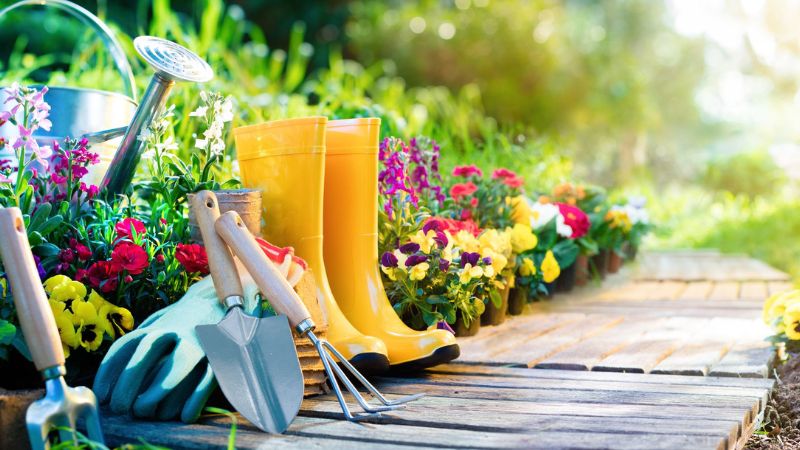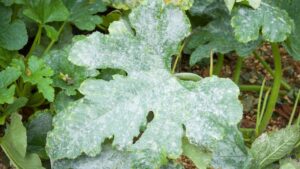Embarking on an organic gardening journey can be immensely rewarding, but it also comes with its fair share of challenges. Fear not! We’ve curated nine ingenious hacks to simplify your life as a green thumb enthusiast. From maximizing space to warding off pests naturally, these hacks promise to elevate your gardening game while staying true to organic principles. Dive into our comprehensive guide and unlock the secrets to a thriving, sustainable garden that not only nourishes your plants but also makes your gardening experience a breeze. Whether you’re a novice or a seasoned gardener, these tips are designed to empower you with practical solutions for a flourishing garden sanctuary.
The 9 Organic Gardening Hacks To Make Your Life Easier
1. Companion Planting for Pest Control
Companion planting involves strategically placing certain plants together to enhance growth, deter pests, and improve overall garden health. Marigolds, for instance, emit a scent that repels many common garden pests like aphids and nematodes, making them excellent companions for vegetables like tomatoes and peppers. Similarly, planting aromatic herbs such as basil, mint, and rosemary alongside susceptible crops can confuse and repel pests while attracting beneficial insects like pollinators and predatory insects that prey on garden pests. By incorporating companion planting into your garden layout, you can naturally reduce the need for chemical pesticides while promoting biodiversity and ecosystem balance.
Also Read: The 9 Amazing Ways Organic Improves Soil Health
2. DIY Organic Fertilizers
Creating your own organic fertilizers not only saves money but also ensures that your plants receive the nutrients they need without harmful synthetic chemicals. Compost, often referred to as “black gold” in gardening circles, is a nutrient-rich soil amendment made from decomposed organic matter such as kitchen scraps, yard waste, and shredded leaves. Additionally, compost tea—a liquid fertilizer made by steeping compost in water—provides a quick and easily absorbed nutrient boost for plants. Other homemade fertilizers, such as bone meal, fish emulsion, and seaweed extract, offer specific nutrients like phosphorus, nitrogen, and potassium essential for plant growth and development. Experiment with different recipes to find the perfect blend for your garden’s needs.
3. Mulching for Moisture Retention and Weed Control
Mulching is a simple yet effective technique that offers multiple benefits for organic gardeners. By covering the soil surface with organic materials like straw, shredded leaves, or grass clippings, you can conserve moisture, suppress weed growth, regulate soil temperature, and improve soil structure over time. Organic mulches also break down gradually, enriching the soil with nutrients and organic matter as they decompose. Additionally, mulch acts as a protective barrier, preventing soil erosion and reducing compaction caused by heavy rainfall or foot traffic. Apply a layer of mulch around your plants, leaving a few inches of space around the stems to prevent rot and disease, and replenish it as needed throughout the growing season.
4. Water Conservation Techniques
Conserving water is crucial for sustainable gardening, especially in regions prone to drought or water restrictions. Implementing water-saving techniques such as drip irrigation, rainwater harvesting, and efficient watering practices can significantly reduce water usage while promoting healthy plant growth. Drip irrigation delivers water directly to the base of plants, minimizing evaporation and runoff compared to overhead watering methods. Rain barrels or cisterns collect rainwater from rooftops, which can then be used to irrigate gardens during dry periods. Additionally, watering plants in the early morning or evening when temperatures are cooler helps minimize water loss due to evaporation, ensuring that plants receive the moisture they need to thrive while conserving this precious resource.
5. Natural Pest Control Remedies
Combatting garden pests without resorting to chemical pesticides is a cornerstone of organic gardening. Fortunately, several natural remedies and preventative measures can help keep pests in check while safeguarding the health of your plants and beneficial insects. Neem oil, derived from the neem tree, acts as a natural insecticide and fungicide, disrupting the life cycle of many common garden pests without harming beneficial insects or pollinators. Garlic spray, made from crushed garlic cloves steeped in water, repels pests like aphids, spider mites, and cabbage loopers with its pungent odor. Introducing beneficial insects such as ladybugs, lacewings, and predatory mites can also help control pest populations by preying on aphids, caterpillars, and other garden nuisances. Regular scouting and early detection of pest infestations allow for prompt intervention with targeted organic solutions, minimizing damage to your crops.
6. Vertical Gardening Solutions
Maximizing space is essential for gardeners with limited outdoor or indoor growing areas. Vertical gardening offers a space-efficient solution by utilizing vertical space to grow plants upward instead of sprawling horizontally. Trellises, arbors, and vertical planters provide support for climbing crops like cucumbers, beans, and peas, allowing them to reach for the sky while freeing up ground space for other plants. Hanging baskets and wall-mounted planters are ideal for trailing or vining plants such as strawberries, herbs, and ornamental flowers, adding visual interest to vertical surfaces while maximizing growing space. Vertical gardening not only increases yields in small gardens but also improves air circulation around plants, reduces pest and disease pressure, and creates a lush green backdrop in limited outdoor spaces or urban environments.
7. Soil Health Improvement Techniques
Healthy soil is the foundation of a successful organic garden, providing essential nutrients, water, and support for plant growth. Soil health improvement techniques such as composting, cover cropping, and crop rotation help replenish nutrients, improve soil structure, and enhance microbial activity over time. Compost, made from organic materials like kitchen scraps, yard waste, and manure, enriches the soil with valuable nutrients while promoting beneficial soil organisms that aid in nutrient cycling and plant growth. Cover crops, such as legumes and grasses, protect bare soil from erosion, suppress weeds, and fix nitrogen from the atmosphere, improving soil fertility and structure when incorporated into the soil. Crop rotation, rotating different plant families in designated areas each season, helps prevent nutrient depletion, reduce pest and disease pressure, and maintain overall soil balance for long-term garden productivity.
8. Organic Weed Management Strategies
Weeding is an inevitable task in any garden, but organic gardeners have several strategies at their disposal to manage weeds effectively without relying on synthetic herbicides. Hand pulling weeds regularly before they have a chance to set seed is one of the most straightforward and environmentally friendly weed control methods. Using mulch to smother weed seeds and prevent them from germinating also reduces weed pressure while conserving soil moisture and improving soil health. Solarization, a technique that involves covering the soil with clear plastic to trap heat and kill weed seeds and pathogens, can be effective in areas with high weed infestations or persistent perennial weeds. Additionally, flame weeding, using a propane torch to heat and kill young weeds, offers a chemical-free alternative for controlling weeds in paths, driveways, and between garden rows.
9. Sustainable Garden Design Principles
Designing a sustainable garden involves thoughtful planning and consideration of environmental factors to create a resilient and low-maintenance ecosystem. Incorporating native plants adapted to the local climate and soil conditions not only reduces water usage and maintenance but also provides essential habitat and food sources for native wildlife. Creating diverse plantings with a mix of flowering plants, herbs, vegetables, and shrubs attracts pollinators, beneficial insects, and birds, fostering a balanced ecosystem and natural pest control. Implementing water-efficient irrigation systems, such as drip irrigation or rain gardens, minimizes water waste and runoff while promoting healthy root development and soil moisture retention. Incorporating recycled materials, rainwater harvesting systems, and compost bins into garden infrastructure further reduces environmental impact and enhances sustainability.
Also Read: 9 Sustainable Irrigation Techniques For Organic Farms
Conclusion
Incorporating these nine organic gardening hacks into your gardening routine will revolutionize the way you nurture your plants. Embrace the simplicity of sustainable practices while witnessing the remarkable growth and vitality of your garden. With these hacks at your disposal, you can cultivate a harmonious ecosystem where plants thrive, pests are kept at bay, and your gardening endeavors yield bountiful rewards. Say goodbye to unnecessary complexities and hello to a greener, more enjoyable gardening experience. Let nature be your guide as you embark on this fulfilling journey towards organic gardening mastery.
FAQs
How can I maximize space in my organic garden?
Utilize vertical gardening techniques such as trellises and hanging baskets to make the most of limited space. Companion planting and intercropping can also optimize space while enhancing plant growth and health.
What are some natural methods to deter pests in organic gardening?
Employ natural repellents like neem oil, garlic spray, and companion planting with pest-deterring plants such as marigolds and basil. Physical barriers like row covers and mulching can also thwart pests without resorting to chemical pesticides.




